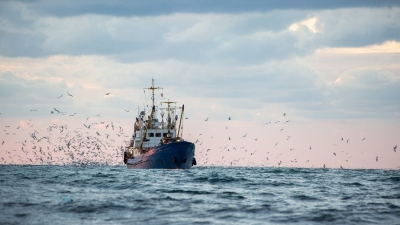EU Commission wants to expand wine producers’ opportunities to enter low-alcohol market

Addressing the Parliament’s Committee on Agriculture and Rural Development, the European Commission announced that it wants to develop the European legal framework on organic wines and labelling to give more producers the possibility to enter the new low-alcohol wine market.
In the 2021 Common Agricultural Policy (CAP) reform, the EU adopted rules to recognise two new terms: “de-alcoholised wine” (up to 0.5% vol) and “partially de-alcoholised wine” (over 0.5% vol).
Those are “one of the potential niches that can offer prospects for the future” to wine producers facing challenges such as declining consumption and climate change, Pierre Bascou, deputy director-general of the European Commission’s Directorate-General for Agriculture (DG AGRI), told MEPs on Monday (15 April).
While the de-alcoholised wine market is still marginal in the EU, especially compared to the zero alcohol market of beers, demand is growing and is already strong in the United States and the United Kingdom. According to the Commission, 42 million litres of de-alcoholised wine could be produced in Europe every year over the next few years.
The EU does not want this market to slip through its fingers, while countries such as New Zealand and Australia are already investing heavily in the sector.
Towards alcohol-free organic wine
The rules on de-alcoholised wines prohibit total de-alcoholisation of wines with a protected designation of origin (PDO or PGI).
“The EU has been a pioneer in clearly defining these provisions, and in enabling these wines to be marketed as ‘wine’ and not as other types of beverage”, Bascou said.
Despite these advances, he acknowledged that the legal framework needed to move forward, particularly for organic wines.
At present, de-alcoholised wines cannot be classified as organic because the methods used to remove alcohol from wine – vacuum evaporation, membrane techniques, and distillation – are not yet recognised in the specifications for the EU organic label.
At the request of Germany and Austria, the European Commission has announced that it is currently studying the possibility of authorising vacuum evaporation. A scientific opinion is expected in the next few days, which will make it possible to envisage a delegated act on this issue, added Bascou.
Other technical impasses concern sparkling wine, from which the alcohol cannot be removed, at least for now.
Debate on labelling
This burgeoning market raises a host of questions about the choice of dealcoholisation techniques, and even about the name of these products.
At the time of the debate on the CAP reform, the proposal to have on the market low alcohol wines sparked a intense debate in Italy. The Italian farmers’ organisation Coldiretti launched a crusade against alcohol-free wines with the slogan “don’t call it wine”, protesting against the “denaturing” of the product.
Similar calls have been the sound wallpaper of Vinitaly, the biggest national wine fair, which started on 14 April. “Let’s make it de-alcoholised, but let’s not call it wine,” Italian Agriculture Minister Francesco Lollobrigida reiterated as he opened the event.
Similar stances emerged in the Agriculture Committee during the discussions in Brussels on Monday.
Spanish MEP Clara Aguiliera (S&D) called for vigilance to ensure that a Coca-Cola-type drink would not one day be labelled “alcohol-free wine”. For the same fears, the German Green lawmaker Martin Häusling called for “consistency” in the rules that have been and will be proposed.
Other MEPs, such as committee vice-president Mazaly Aguilar (ECR), pointed to the additional production costs to remove alcohol from wine, which small producers would be unable to bear.
While the European Commission is working with the International Wine Organisation (OIV) on a regulatory framework on this issue, Bascou said he saw good prospects for the de-alcoholised wine niche.

Ireland ‘surprised’ to receive EU green light on alcohol health label
The Irish government is “grateful and somewhat surprised” that the European Commission did not reject their draft regulation for health warning labels on alcohol, despite renewed attempts by other member states to block the proposal.
Read more with Euractiv



